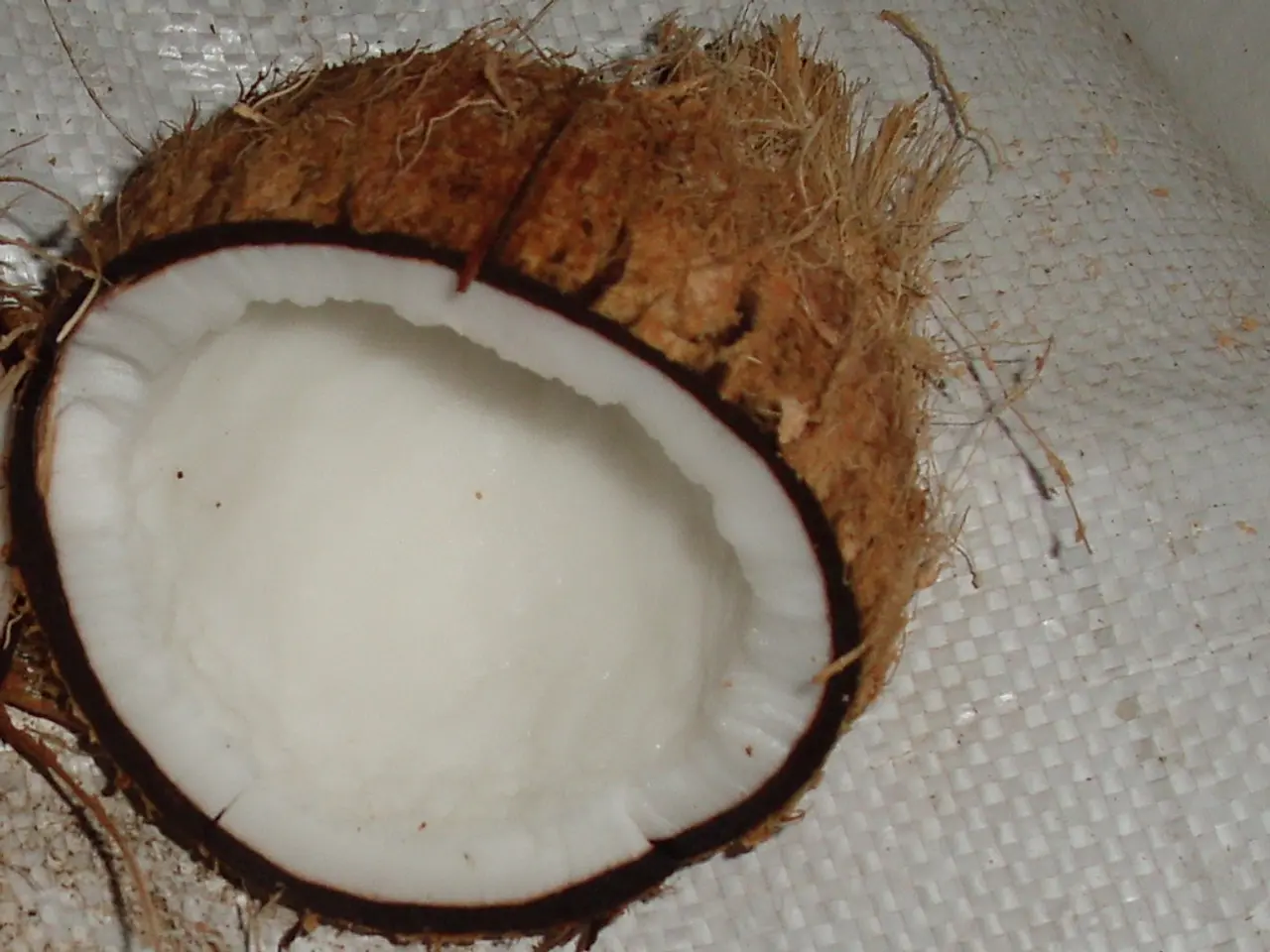Versatile Oil: Exploration of Coconut Oil's Culinary and Health Applications
Coconut oil, a popular staple in many kitchens and beauty routines, has been the subject of much debate regarding its health impacts. In this article, we aim to separate fact from fiction, shedding light on the benefits and potential risks of this versatile oil.
Coconut oil exhibits significant potential in beauty and skincare due to its moisturizing and anti-ageing characteristics, rich content of medium-chain fatty acids, and antioxidants. It works wonders on the skin, providing deep moisturizing benefits, making the skin soft and supple, being effective in lip care, and nourishing the hair from root to tip, ensuring luscious locks. Moreover, its antioxidant properties combat harmful free radicals that accelerate ageing, promoting skin elasticity and collagen production, reducing fine lines and wrinkles, and enhancing one's natural beauty.
However, it is essential to address common misconceptions about coconut oil and its health impacts. While coconut oil contains medium-chain fatty acids like lauric acid that have antimicrobial and anti-inflammatory effects, it is also rich in saturated fats, which can raise LDL ("bad") cholesterol and potentially increase cardiovascular risk.
One misconception is that coconut oil is always healthy due to its natural origin and antimicrobial properties. While these properties offer some benefits, the high saturated fat content should not be overlooked. Another misconception is that coconut oil is ideal for deep frying because of its high smoke point. While it does have a relatively high smoke point, some experts argue that it has a low oxidative stability under frying conditions, meaning it can degrade and form harmful compounds that damage cells and promote inflammation.
It is also important to note that all saturated fats, including those in coconut oil, do not pose equal cardiovascular risks. Research shows that different saturated fatty acids vary in their effects. Coconut oil’s SFAs, particularly medium-chain ones, may have different impacts than long-chain SFAs. The overall diet and fatty acid balance are also crucial, so blanket statements about saturated fat risks oversimplify the issue.
Furthermore, the notion that coconut oil is harmless for skin and health even with frequent frying or high heat cooking is also disputed. Frying with oils prone to oxidation like coconut oil can contribute to skin aging, cellulite, and other oxidative stress-related conditions due to the formation of harmful glycation and lipid peroxidation products.
In summary, while coconut oil has some beneficial fatty acids and bioactive compounds, misconceptions exaggerate its health benefits and understate risks related to saturated fat content, oxidative stability during cooking, and cardiovascular impact. Balanced consumption and proper cooking methods are important considerations.
Coconut oil offers nutritional and health advantages, its saturated fat content doesn't equate to harm but rather provides unique health benefits, and its culinary use enhances dishes while its beauty applications nourish the skin, making it a comprehensive health and wellness resource. However, it is not a miracle cure-all but can contribute to a healthy lifestyle. People with coconut allergies should avoid it, and it should not be consumed to the exclusion of other nutrient-rich foods.
References:
[1] Lopez-Garcia, E., & Salas-Salvado, J. (2014). Extra virgin olive oil consumption and health status: An updated systematic review and meta-analysis of observational studies. British Journal of Nutrition, 112(10), 1655-1665.
[3] Venn, B. J., & Mann, J. I. (2017). Saturated fats, carbohydrates, and cardiovascular disease. BMJ, 356, j861.
[4] Mensink, R. P., & Katan, M. B. (2013). Dietary fats and coronary heart disease. Nature Reviews Cardiology, 10(10), 654-668.
- The antioxidant properties of coconut oil and its rich content of medium-chain fatty acids make it beneficial in skincare and beauty routines, providing deep moisturization and contributing to skin elasticity.
- Despite its health advantages, excessive consumption of coconut oil may not be ideal due to its high saturated fat content, which can potentially increase cardiovascular risks.
- The saturated fats in coconut oil provide unique health benefits, but it should not replace other nutrient-rich foods in one's diet.
- Coconut oil's high smoke point and antimicrobial properties might lead to the misconception that it's perfect for deep frying, but some experts argue that it has low oxidative stability under frying conditions, which can lead to the formation of harmful compounds.




